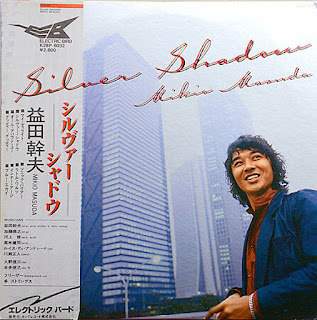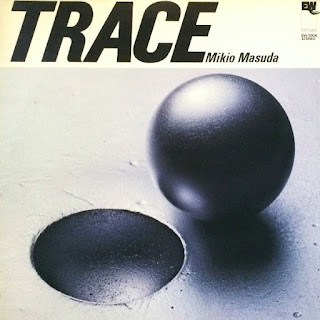Hey there. Back again to close out our look into Mikio Masuda's catalog. The final 4 albums for today are an improvement over what we heard towards the tail end of our last post. Going to keep this one quick so we can move on.
First up is the 1986 release on the JVC label, Dear Friends. The copy I have here is the reissue with some extra tracks. Mickey is strictly on the piano and is joined by bassist Hideo Kawahara, percussionist Tatsuji Yokoyama and drummer Shingo Okudaira.
This one has a Latin vibe on quite a few tunes and highlights here for me would be "Istanbul" and "Everyday Everynight" and the closing tune "Impromptu In Blue."
The following year in 1987, and using the same personnel, Mickey released another album on the JVC label titled Smokin' Night. Nothing Earth shattering here but another acoustic straight ahead album with some Latin vibes to it at times. Highlights for me are "Mbalishu" which features some nice back and forth from Yokoyama and Okudaira, as well as "Blue Island" and the closing tune, "Chase." Not a bad album by any means.
Mickey released an acoustic trio album in 1990 titled Autumn Leaves that I haven't been able to locate. Anyone out there with a copy - please share.
The next release I have of Mickey's was 10 years later in 1997, again on the JVC label. Titled Black Daffodils and featuring Ron Carter on bass and Lewis Nash on drums, Mickey plays a handful of covers that are honestly nice to hear from him. He plays quite nicely on "There Is No Greater Love" and Sonny Rollins classic "Oleo." Another nice album on the backend of Mickey's career.
The final album I have here is again on JVC and released in 1998. Joining Mickey on Blue Dumplings we again have Ron Carter on bass with Grady Tate on drums, this time around. More of the same of what we heard on Black Daffodils. Highlights here for me are the original title track along with "It Could Happen To You." Very easy going, straight ahead stuff here. Another well rounded album to close out Mickey's catalog.
Enjoy!





















